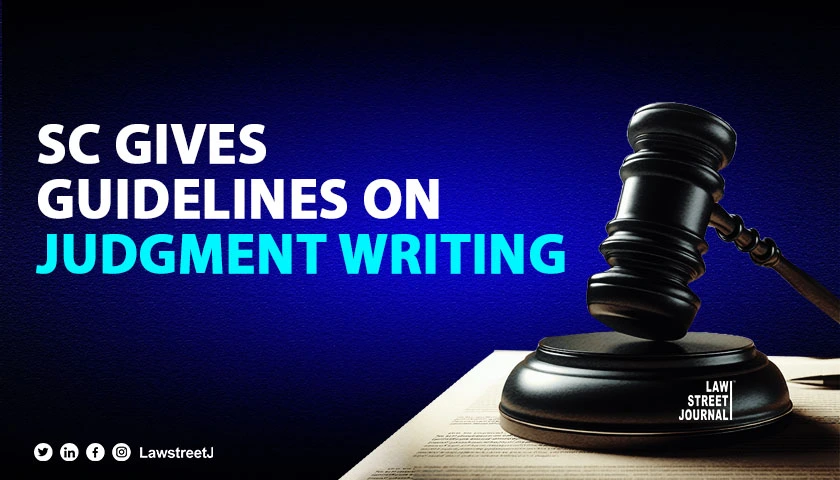NEW DELHI: The Supreme Court has said a judgment must be in simple language and should not be verbose, as brevity is the hallmark of quality judgment and a judgment is neither a thesis nor a piece of literature.
In a judgment on 'In Re Right To Privacy Of Adolescents', a bench of Justices Abhay S Oka and Ujjal Bhuyan provided a broad guidelines on writing a judgment for the judges.
"A judgment of the court cannot contain the Judge’s personal opinions on various subjects. Similarly, advisory jurisdiction cannot be exercised by the court by incorporating advice to the parties or advice in general. The Judge has to decide a case and not preach. The judgment cannot contain irrelevant and unnecessary material," the court said.
The bench pointed out the ultimate object of writing a judgment is to ensure that the parties before the court know why the case is decided in their favour or against them. Therefore, judgment must be in a simple language. The conclusions recorded by the Court in the judgment on legal or factual issues must be supported by cogent reasons.
"The court can always comment upon the conduct of the parties. However, the findings regarding the conduct of the parties must be confined only to such conduct which has a bearing on the decision-making," it said.
The bench highlighted when a Court deals with an appeal against an order of conviction, the judgment must contain (i) a concise statement of the facts of the case, (ii) the nature of the evidence adduced by the prosecution and the defence, if any, (iii) the submissions made by the parties, (iv) the analysis based on the reappreciation of evidence, and (v) the reasons for either confirming the guilt of the accused or for acquitting the accused.
The appellate court must scan through the evidence, both oral and documentary, and reappreciate it. After reappreciating the evidence, the appellate court must record reasons for either accepting the evidence of the prosecution or for disbelieving the evidence of the prosecution, the bench said.
The court must record reasons for deciding whether the charges against the accused have been proved. In a given case, if the conviction is confirmed, the court will have to deal with the legality and adequacy of the sentence. In such a case, there must be a finding recorded on the legality and adequacy of the sentence with reasons, the bench added.
The top court set aside the Calcutta High Court's judgement of October 18, 2023, which had said, "It is the duty/obligation of every female adolescent to: protect her right to integrity of her body. Control sexual urge/urges as in the eyes of the society she is the looser (sic) when she gives in to enjoy the sexual pleasure of hardly two minute".
The bench said judges ought to have avoided expressing their personal views even assuming that there was some justification for holding the views.
"The High Court went into the question of rights based approach, which was completely unwarranted," the bench said.
It also pointed out in paragraph 30.1, the High Court referred to the generation of androgenic steroids and secretion from the pituitary gland, thereafter, it laid down the duties and obligations of every female and adolescent.
Terming those observations as entirely irrelevant and unwarranted, the bench said, "There are several statements and conclusions in the judgment which, to say the least, are shocking. Perversity is writ large on the face of the judgment."















